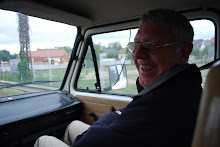During the communist era many families started having only one or two children. This way, a family’s resources could go into supporting this one child and hopefully improve this child’s future wealth and well being. This trend contributed to a decline in the Transylvanian population which coincided with their increased pessimism as a result of communist oppression. Government regulations during this time were limiting the spiritual, agricultural and cultural practices of the Hungarian minority in
The consequences of this trend were widespread over all areas of life. As parents grew older, children were expected to care for them. Having one child decreased the likelihood of having a caregiver in old age and carrying on the family name. Also, many children who reached adulthood moved to other more western parts of
As the population continued to disperse and decline, churches in rural communities were shrinking. After visiting many rural churches, this trend became very evident to us. One Hungarian Reformed church we visited in the town of
Lengthy maternity leaves are evidence that the government is trying to increase family size to restore the many struggling rural communities and the wealth of the country. Increasing the population is important for maintaining spiritual communities because Transylvanians find it culturally unacceptable to close a church. It would also be geographically difficult to combine congregations due to limited transportation. It is interesting to compare this desire for growth with the attitudes of many other westernized countries that are dealing with issues of overpopulation and resource depletion.

No comments:
Post a Comment